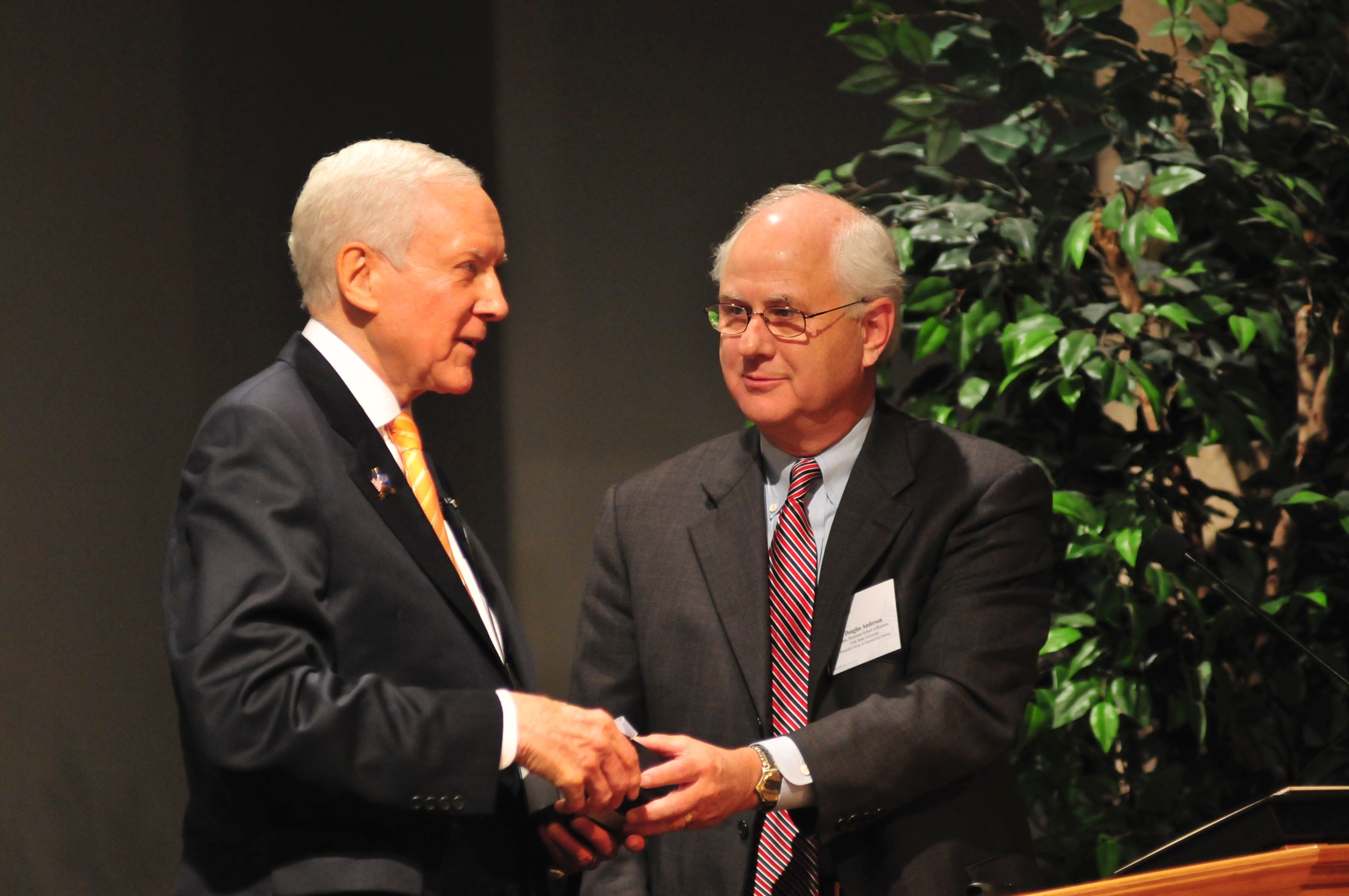Hatch hopes for energy independence
The U.S. relies too heavily on other countries’ sources of fossil fuel, and finding alternative energy sources is one way to break that dependence, Sen. Orrin Hatch said Thursday.
“We’ve got to wake up around here. We have to be energy independent or we’ll be dependent on the world,” Hatch said during his keynote speech for the Huntsman School of Business’ first Renewable Energy, Cleantech and Sustainable Business Seminar.
Hatch discussed energy security, which he separated into two categories: the use of transportation fuels and generation of electricity.
The U.S. spends about $700 billion offshore for oil, Hatch said, demonstrating the country’s dependence on other countries.
Of this money being spent, Hatch asked, “Why wouldn’t we want to spend it here domestically, so we can keep it home?”
One way to keep the money domestic is by creating alternate sources of energy. Hatch said the Energy Policy Act of 2005 was enacted to create a market of incentives for alternative energy in the United States instead of a government mandate. Hatch said the market is “the most powerful engine.”
He said the act was also placed to make sure tax payers were getting the “bang for their buck,” to make sure incentives to use alternate energy sources were scaled to meet the level of the benefit and as a way of solving the chicken and egg of alternative fuel. He said the “chicken and egg” looks at several key parts involved with alternate energy sources, specifically vehicles, fuel and infrastructure. He said successful policy should address all three parts.
Hatch said he’s “convinced no alternate fuel is ready to replace our need for fossil fuels.”
That need for fuels is not going to disappear in the near future, Hatch said, but change is in the future.
Hatch called plug-in hybrid cars “nothing short of revolutionary” and said this shift from fuel to an electric grid holds a lot of possibility.
“When you think of the benefits, you can’t help but get excited,” he said.
Plug-in hybrids have a strong bipartisan support, Hatch said, and he thinks it’s the beginning of a new age of transportation. He also said he’s seen general public acceptance of the new technologies.
The electric grid is 30 percent renewable, Hatch said. Plug-in hybrid technology is not perfect, however, and Hatch said it will take work to make it “cleaner and greener.” Though, Hatch said he sees it has potential. One of the biggest benefits of the electric grid is that it’s a domestic source of energy, Hatch said.
Plug-in hybrids, however, are only one source of alternative energy. Hatch also mentioned sources such as wind, hydroelectric, solar and geothermal energy. Utah has “mass potential” for alternative energy sources, especially geothermal, he said.
Hatch mentioned a goldsmith and a steam engine mechanic. The goldsmith, Johannes Gutenberg, was able to “transform existing technology for public need,” Hatch said. In 1424, the Cambridge Library only had 122 books in its collection, but at the time 122 was considered a large amount due to the long process of duplicating a book as well as the cost of a book. Hatch said that at that time, each book was valued equal to a small farm or vineyard. His invention of mechanical movable type printing changed the way books were duplicated, and information was transferred.
The other man Hatch mentioned, the steam engine mechanic, was Henry Ford. Ford had to walk four miles back and forth to church each Sunday until he developed what was called the horseless carriage. Eventually, Ford created the Model T, which was reliable and affordable. By 1914, Ford had sold 250,000 Model T’s. Hatch said basic principles from the Model T are still basic principles in cars today.
Gutenberg and Ford were “successful by responding to the needs of the mass market,” Hatch said.
Hatch said climate change is not at the top of his priority list because he sees the energy crisis as a more important occupation of his efforts. He said the U.S. will be in full crisis mode when the global supply can’t keep up with the demand for fuel. However, he said the good thing of the crisis is it makes people “come together in smart, creative approaches.”
– rac.ch@aggiemail.usu.edu

